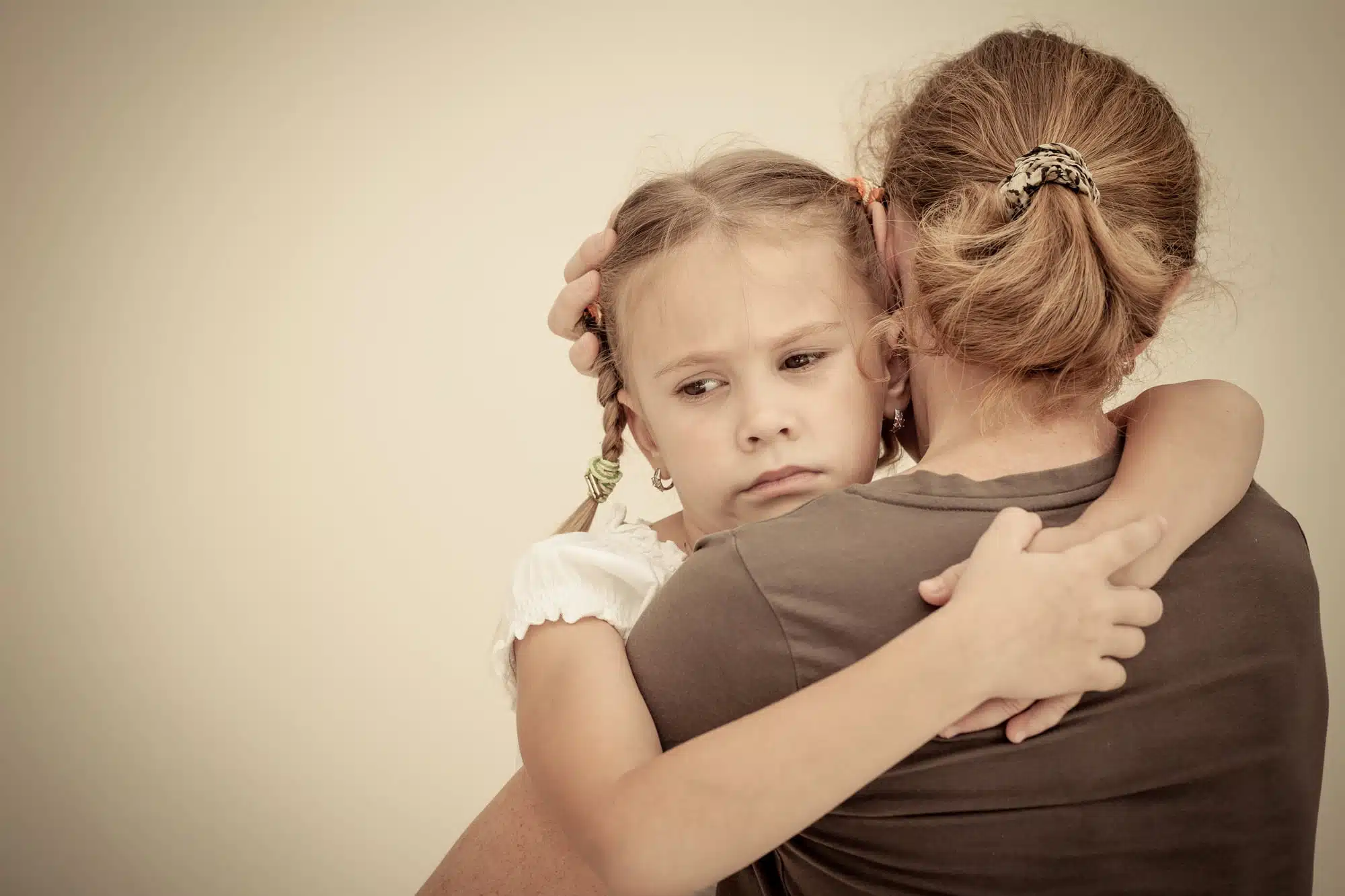
Experiencing loss can be a difficult experience for most people, and this includes our children. In fact, coping with loss can be more complicated for our children because they don’t always understand the permanence related to loss.
Children express their grief in ways that may not be as obvious to adults because it looks different from how we express our grief. Sometimes our child might be very sad and tearful, yet very quickly begin playing again and seem quite content. This may suggest to us that our child has processed the grief or is too young to properly understand it and is, therefore, not truly affected by it.
These assumptions are usually incorrect. Children do feel loss and grief, and often, they do not know how to express it and revert to comforting behaviour such as play. Yet sometimes, their play can reflect how they are feeling. These emotions can be overwhelming for our small humans, and they need a guiding adult to help them process their grief in a healthy manner and begin to develop coping skills, which will build the foundation for dealing with grief over their lives.
As the adult in their life, you can assist them in this process. Whether this help is at home or with Calgary child counselling, you and your child can move toward a healthy processing of your loss.
When something changes in a child’s life, there is a feeling of insecurity and a loss of safety. This can make a child feel overwhelmed and untethered. They are usually unable to process any sense of loss and healing if they feel unsafe.
Maintaining their routine is one way to help instill a sense of safety through the change caused by the loss being faced. For example, if the loss is related to a death of a pet or a family member, then maintaining the daily routine of getting up, getting dressed, eating, doing chores, etc., is a helpful idea to show a child that their whole life has not changed. If the loss is through a change in circumstances, such as a divorce or moving house, then maintaining a similar routine in both houses or continuing the previous routine in the new house will bring a sense of normalcy and safety to the child.
Maintaining a routine will also help provide you with stability and a sense of consistency. These will assist you during your grieving process while being present for your child at the same time.
There are activities that you can do with your child to assist them through the grieving process. Your active presence will be a key factor in them learning how to internalize and process big emotions in a healthy manner. Doing these activities together can help you both bond and grieve, and in this way, you are role-modelling how to accurately deal with their big emotions.
Working together to create a memory box can help form a concrete or tangible object that a child can return to when they feel sad. Usually, a memory box contains objects and pictures that hold memories of the person lost.
A memory box offers a way to remember the person and recall good memories. You can help to encourage healthy grieving by balancing the pain of loss with good memories. This will also help you explain to your child that they can always remember the person (or pet—because losing a pet is hard for a child) in their minds and hearts.
If you hold religious or cultural beliefs about the afterlife or death, you can share these with your child as well. Remember that what you share with your child will help them form the basis for dealing with loss and grief. Therefore, you want to encourage an expression of their emotions and offer something like memories for comfort.
Using a journal or diary can offer another opportunity to express their emotions and note down memories. A journal or diary doesn’t have to be only the written word; it can include photographs, hand-drawn pictures, cut-outs from magazines, etc.
Making a journal or diary is a personal process, and it needs to work for you. Using one to help your child work through grief might be a good option for an older child who would like a private place to safely express and get to know how they are feeling. This platform can allow a child to begin to learn how to enable overwhelming thoughts and emotions to be expressed.
Another option to help a child grieve and say goodbye is to write a letter to the person who has been lost. Remember that children, especially young children, do not understand the permanence of death. Therefore, the language that you use with them needs to be clear and not ambiguous. Telling your child that the person has ‘gone to sleep’ or ‘gone away’ may cause confusion, anger and fear. Perhaps your child will fear when anyone needs to go to sleep because they will ‘disappear’. Or they may become angry and feel abandoned because the loved one is choosing not to come from where they have gone.
Writing a letter to say goodbye can help a child start to internalize this permanence, as the letter will be a final goodbye from them to the person. This is an opportunity for them to say any last things they wish to.
It’s understandable that you’ll be fully focused on your child’s grieving process, and your concern will be their well-being. While this is important, you must also remember your own grieving process. This is important for two reasons:
The first reason is that you need to engage with the grieving process to maintain your own well-being and process. If you’re not grieving in a healthy manner, then you may experience it negatively affecting your ability to support your child and manage your daily routine and tasks.
The second reason is that you’re the most important teaching tool to your child—you are their role model. They are constantly learning from you and will absorb how you process your loss and grief and mimic this because they believe it is the best way to cope.
This may mean you need to reach out for support and assistance, and this is a healthy and helpful decision to make and destigmatizes asking for help for your child.
There are times when grief can become too difficult to manage and process on your own. At One Life Counselling and Coaching, we are here to support you seven days a week. We can offer you and your family a safe and supportive environment to face and process your loss.
If you or your child are struggling with grief, please reach out to us and make an appointment so that our Calgary therapists can walk through this difficult journey with you.
